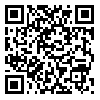Volume 12, Issue 3 (May & June 2021)
BCN 2021, 12(3): 349-360 |
Back to browse issues page
1- Department of Sport Physiology, Faculty of Sports Sciences, Shahid Chamran University of Ahvaz, Ahvaz, Iran.
2- Department of Physiology, Khalij Fars Physiology Research Center, School of Medicine, Ahvaz Jundishapur University of Medical Sciences, Ahvaz, Iran.
2- Department of Physiology, Khalij Fars Physiology Research Center, School of Medicine, Ahvaz Jundishapur University of Medical Sciences, Ahvaz, Iran.
Abstract:
Introduction: This study evaluates the effects of 8 weeks of resistance exercises on the expression of neurotrophins and Trk receptors in Alzheimer model male Wistar rats.
Methods: For this purpose, 32 mature male Wistar rats with a mean weight of 230-280 g were chosen and divided into Alzheimer and Sham groups. The rats in the sham group received normal saline, while the ones in the Alzheimer group received streptomycin via intraventricular injection. These rats were then divided into the following four subgroups: 1) resting sham, 2) exercising sham, 3) resting Alzheimer, and 4) exercising Alzheimer. The two exercising rat subgroups exercised three times a week for 8 weeks. A weight was attached to their tails, and they had to carry it on a 26-step ladder in each cycle. Resting groups were handled every day to minimize the effects of stress. At the end of the eighth week and 24 hours after the last exercise session (to avoid the effects of the last exercise session), the rats were put under deep anesthesia and beheaded. Hippocampus tissues were precisely extracted, and samples were sent to the laboratory for molecular and cellular tests. To investigate gene expression, quantitative RT-PCR was used.
Results: The tests for comparing the mean values of BDNF, NT3, NGF, TrkA, and TrkB in two rat groups showed that with error levels of less than 5%, there is a significant difference in the amounts of BDNF, NT3, NGF, TrkA, and TrkB between exercising rats and resting ones. These amounts were much higher in the exercising Alzheimer rats group.
Conclusion: Eight weeks of resistance exercises increased the expression of BDNF, NT3, and NGF genes and TrkA and TrkB receptors in Alzheimer model Wistar rats.
Methods: For this purpose, 32 mature male Wistar rats with a mean weight of 230-280 g were chosen and divided into Alzheimer and Sham groups. The rats in the sham group received normal saline, while the ones in the Alzheimer group received streptomycin via intraventricular injection. These rats were then divided into the following four subgroups: 1) resting sham, 2) exercising sham, 3) resting Alzheimer, and 4) exercising Alzheimer. The two exercising rat subgroups exercised three times a week for 8 weeks. A weight was attached to their tails, and they had to carry it on a 26-step ladder in each cycle. Resting groups were handled every day to minimize the effects of stress. At the end of the eighth week and 24 hours after the last exercise session (to avoid the effects of the last exercise session), the rats were put under deep anesthesia and beheaded. Hippocampus tissues were precisely extracted, and samples were sent to the laboratory for molecular and cellular tests. To investigate gene expression, quantitative RT-PCR was used.
Results: The tests for comparing the mean values of BDNF, NT3, NGF, TrkA, and TrkB in two rat groups showed that with error levels of less than 5%, there is a significant difference in the amounts of BDNF, NT3, NGF, TrkA, and TrkB between exercising rats and resting ones. These amounts were much higher in the exercising Alzheimer rats group.
Conclusion: Eight weeks of resistance exercises increased the expression of BDNF, NT3, and NGF genes and TrkA and TrkB receptors in Alzheimer model Wistar rats.
Type of Study: Original |
Subject:
Cellular and molecular Neuroscience
Received: 2019/09/22 | Accepted: 2020/03/1 | Published: 2021/05/1
Received: 2019/09/22 | Accepted: 2020/03/1 | Published: 2021/05/1
| Rights and permissions | |
 |
This work is licensed under a Creative Commons Attribution-NonCommercial 4.0 International License. |





